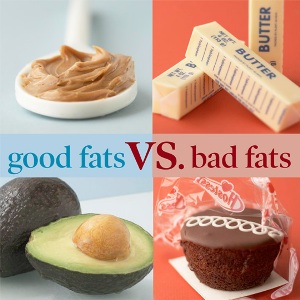 |
| Need a treat? |
Going too long without a treat is impossible. And I doubt I am alone in thinking that way. For me, never indulging in a cookie or two, ice cream, or crackers or chips is not an option.
I've found an all or nothing mentality doesn't work too well. I need balance and routine. Even in my eating habits.
As careful, and as conscientious as I am about how I eat, I always find room for an occasional treat or two! I'd go crazy otherwise.
Giving yourself a break, indulging -- whatever you want to call it -- is a necessity in order to stay with your day-to-day routine. Long term dieting, if that's what you wish to call it, isn't possible.
No Chemicals, Please
How you indulge, and how often you indulge is key. When it comes time for your treat, be picky!
Calories and fat are okay. Chemicals are not! I know, in today's world, this is tough. The readily-available stuff -- the candy bars, the potato chips, the microwave popcorn -- is the easiest to get our hands on! But it's also the most damaging health wise.
Not surprisingly, there are non-chemical options. You just have to look a little harder to find them.
 |
| Unreal comparison. |
Cleaned up junk food. Worth a try if you ask me.
If you find yourself reaching for a candy bar, make it an Unreal candy bar. Or there's Newman's Own Organics cookies. Or Eden Organic popcorn.
The point is: there are options. And they go beyond M&Ms, Ritz Crackers, Doritos, and Orville Redenbacher's Popcorn. They are non-GMO, no chemical foods.
Our body knows how to process calories, fats, and sugars. It doesn't, on the other hand, know what to do with chemicals. When we take the chemicals out of our snacks, it then becomes about the quantity -- how much we're eating of it (check out the podcast linked below for Jillian Michaels' talk of her 80/20% rule).
Long story, short: pick a version of your treat of choice that is not loaded with chemicals and/or trans-fat.
Many times, this conversation leads to diet talk: the fad diet everyone is trying at the moment, what's working for your friend, and so on. Everyone wants to know, 'what should I be doing; what's the best diet?'
 |
| Fill up with whole foods. |
There is no 'best diet' per se.
What I find valuable about each diet-of-the-moment is that they allow me to learn a little bit more about nutrition. If you do some research on your own, and try to learn about the various (and they are wide-ranging) ways of eating, you'll find yourself becoming educated on each and every one of them.
You learn about food, and how it fuels you. You learn what works for you, and how your body reacts to various foods. We're all vastly different, and therefore we all react to eating habits and diets in different ways. You learn to value the quality of food.
And most importantly, at least for me, it truly allows you to realize a balanced diet, filled with as many 'whole foods' as you can fit in, is the way to go.
Check out this blog post from Precision Nutrition for great information about diet specifics.
It's realizing it's a lifestyle choice, not a diet. Being healthy isn't a destination, it's a way to live.
Fads Come and Go
Diets, gimmicks, and the popular workout-of-the-year don't last forever.
Excluding entire food groups (such as fruit), one macronutrient or another (carbohydrates, for example), or strict demands with how to prepare food (raw food diet) are impossible diets to stick with for a prolonged period of time, let alone your entire life.
 |
| A little joke I dug up. |
While you might go low-carb or paleo for four or five months, and see great results. Inevitably, we start going back to a more 'normal' way to eat. Those restricted foods are added back in, and that's when we run into trouble.
The basics -- the well-rounded, whole food, in-moderation advices -- will last through time. If 'healthy' is a goal, habits and lifestyles have to be adjusted to match that goal. Again, it's a lifestyle, not a diet.
We've all heard it, and it's true: Cleaning up your diet, limited processed foods, really will make you feel better, and be healthier -- even when you find yourself wandering towards the junk food aisle!
Be conscientious and thoughtful about how you are eating, but don't forget to give yourself a break every once in a while too! It will make you more successful in the long run.
LINKS:
Jillian Michaels Podcast 4/29/2013
Enjoy Foods You Love Without 'Cheating'
Food Babe's Non-GMO Snack Brands
UNREAL Candy
Newman's Own Organics
Precision Nutrition: the Best Diet
Enjoy Foods You Love Without 'Cheating'
Food Babe's Non-GMO Snack Brands
UNREAL Candy
Newman's Own Organics
Precision Nutrition: the Best Diet









